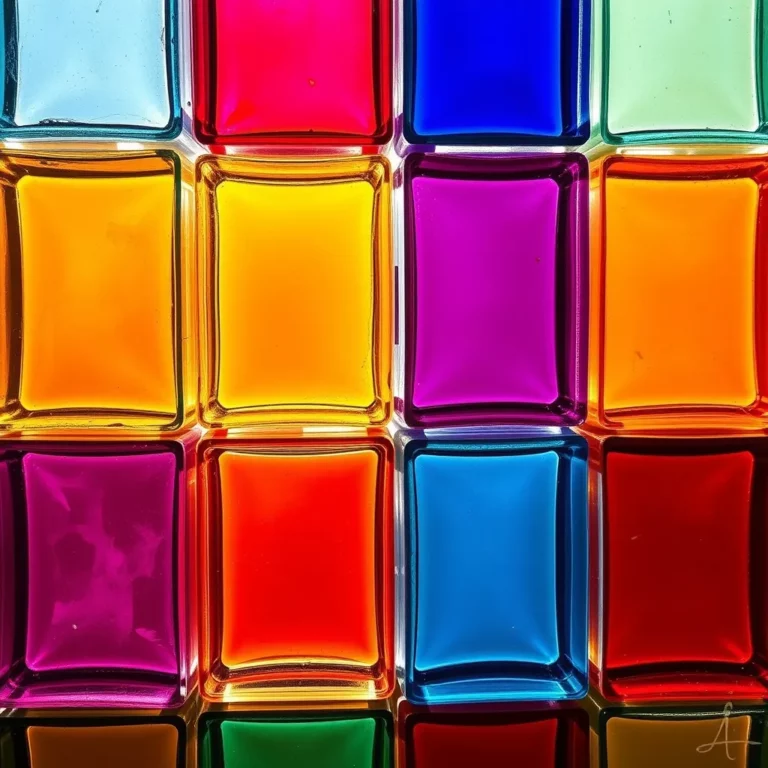> Blogs > Solid Glass Block Production Process: A Technical Guide for Industrial Buyers
Solid Glass Block Production Process: A Technical Guide for Industrial Buyers
Key Directory Guide
In the world of architectural glass design and construction, solid glass blocks have emerged as a versatile and durable material that combines both form and function. These blocks, typically used in partitions, facades, and decorative elements, offer significant advantages over hollow glass alternatives, especially in terms of strength and aesthetic appeal. However, the production process behind these solid glass blocks is highly technical and requires careful attention to detail at each stage. This guide provides a comprehensive overview of the solid glass block manufacturing process, focusing on the intricacies that industrial buyers and procurement managers need to consider when choosing a reliable supplier.
Why Choose Solid Glass Blocks Over Hollow Alternatives?
When it comes to selecting between solid and hollow glass blocks, several factors must be evaluated, including strength, thermal insulation, and aesthetic value. Solid glass blocks offer enhanced durability and resistance to mechanical stresses, making them a preferred choice for high-impact applications. Unlike their hollow counterparts, which may have air pockets prone to damage, solid glass blocks maintain structural integrity even under high pressure.

Architecturally, solid glass blocks provide a seamless, elegant appearance, ideal for interior and exterior installations. They are also more energy-efficient than hollow blocks due to their better thermal insulation properties. These factors make solid glass blocks a top choice for building projects where both functionality and aesthetics are critical. In the following sections, we will dive deeper into the production stages that lead to the creation of these robust architectural materials.
Stage 1: Raw Material Preparation for Solid Glass Blocks
The first stage in solid glass block manufacturing is raw material preparation. The key ingredients typically include silica sand, soda ash, lime, and other specialized compounds. One of the most important steps during this phase is the incorporation of borates, which significantly affect the properties of the glass. These compounds help control the crystal phase during the melting process, ensuring that the final glass maintains both clarity and strength.
According to ISO 11485, the melting temperature for solid glass block production typically ranges between 1,300°C and 1,500°C. This high-temperature environment facilitates the thorough mixing of raw materials, creating a homogeneous molten glass that forms the foundation of the final product. At this stage, the careful balance of ingredients and temperatures is crucial to ensure that the glass block will meet all required standards for durability and appearance.
Stage 2: Forming of Solid Glass Blocks
Once the raw materials are properly prepared and mixed, the production process moves to the next stage—forming the solid glass blocks. There are several methods of forming, with the most common being thermal fusion. In thermal fused glass block production, the molten glass is poured into precisely crafted molds. These molds define the size, shape, and texture of the glass block, ensuring that each piece meets the required specifications for architectural use.
Stage 3: Annealing
After the glass is poured into the molds, it undergoes a process called annealing. During annealing, the solid glass block is slowly cooled in a controlled environment, a process that helps to reduce internal stresses and improve the structural integrity of the final product. The cooling rate and temperature are carefully controlled, as any fluctuations can lead to defects in the glass, such as cracking or warping.
Final Stage: Quality Inspection
Another key step in the manufacturing process is the inspection and quality control phase. Each batch of glass blocks undergoes rigorous testing to ensure that the blocks meet international standards like EN 572-7. For instance, solid glass blocks must withstand pressures of at least 25 MPa as part of the standard testing procedure. This high level of quality assurance ensures that only the best products are delivered to customers.

SHD Crystal: Reliable Solid Glass Block Partner
When selecting a manufacturer for solid glass blocks, it’s important to consider their technical capabilities and commitment to quality. SHD Crystal, for example, stands out as a leading producer of thermal fused glass blocks. Their advanced annealing processes and attention to detail in the raw material preparation stage ensure that each glass block is durable, clear, and resistant to cracking or warping.
Manufacturers like SHD Crystal also employ the latest technologies in glass block production to meet the growing demand for high-performance architectural glass materials. Their state-of-the-art production lines guarantee precision and consistency, ensuring that each batch of glass blocks meets the strictest industry standards.
Choose us Today
By understanding the complexities of the production process and aligning with trusted manufacturers, you can secure high-quality glass blocks that will stand the test of time.